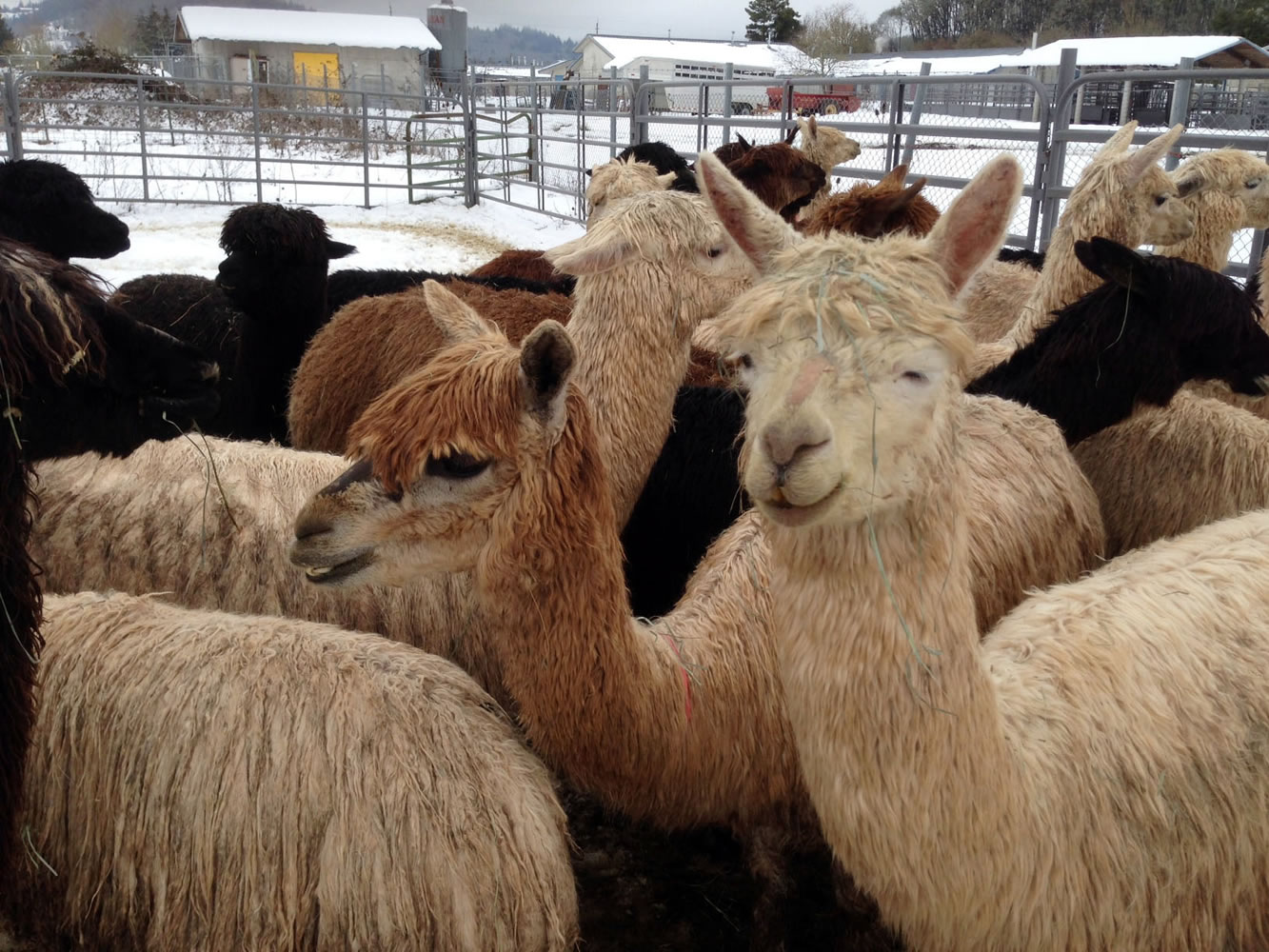GRANTS PASS, Ore. — Oregon State University’s veterinary school is taking over the care of about 175 alpacas after authorities say the animals were found starving at a breeding operation in the Willamette Valley.
“They’re darn cute,” attending veterinarian Dr. Helen Diggs said Monday from Corvallis. “But they’re so thin, it makes you want to cry.”
The College of Veterinary Medicine decided it needed to “step in and see what we could do” for the animals after another location fell through, professor Christopher Cebra said. The college will care for the herd until the alpacas are healthy enough to be adopted. Males will be castrated.
Polk County sheriff’s Lt. Jeff Isham said the county won forfeiture of the animals last week after Jocelyn’s Alpaca Ranch owners Jocelyn and Robert Silver of Falls City could not care for them. The Silvers also face animal neglect charges. Their lawyers did not return calls, and Robert Silver declined to comment.
Isham said 54 animals were trucked to the university last week before a winter storm forced a postponement. The rest are to be shipped in the next couple of days.
Shari Bond of Cross Creek Alpaca Rescue in Tenino said this is the biggest case she has been involved in. She added rescues have become more common since the recession knocked the bottom out of the alpaca market.
“People who were making a lot of money think they can still make a lot of money, but they get themselves in over their heads,” Bond said. “It wasn’t that long ago you could make $10,000 to $15,000 an animal. Now you are lucky if you get $100 or $200.”
At one point, as many as 235 animals were crowded onto three acres, a space suitable for less than 20, Isham said. With no grass or hay to eat, the alpacas had stripped the bark from large fir trees, killing them. Authorities said about 30 alpacas died during a cold snap after the county started feeding them, and there was evidence that more died before the county stepped in.
The Silvers bought the ranch in 2004, and in 2005 brought in 25 alpacas, according to federal court records from an insurance case. The herd grew to 265 in 2012, with plans to grow by 100 more. Some neighbors sued, complaining of offensive odors and a fly infestation. The insurance company won a U.S. District Court judgment that it had no obligation to defend the Silvers, because they were making a business claim on a homeowners’ policy. In October, the Silvers filed a Chapter 7 bankruptcy petition in U.S. Bankruptcy Court.
The sheriff’s office was first alerted to the alpacas by a neighbor in March 2012, Isham said. At that time, veterinarians inspected the herd, and found most of them were fine, though a few were weak because they were not able to compete for limited food.
Vets returned to the ranch Dec. 5 and found the animals were starving, Isham said. They recommended the county take over the animals’ care.
The county began buying $700 a day worth of hay, which they fed the alpacas on the ranch. When a cold spell hit, about 50 died. After the herd was ruled forfeit last week, the county needed somewhere to put the animals, and OSU’s College of Veterinary Medicine volunteered to take them.
The cost of caring for the alpacas has topped $14,000, but grants from animal groups like the Humane Society have defrayed most of the expenses, Isham said.
All of the animals are thin, and some have foot and teeth problems, Diggs said. One baby was born to a mother alpaca at OSU.
“When you run your hand over their backs, you can feel their ribs and backbones sticking out,” Diggs said. “Because they are so hairy, you can’t tell that until you get your hands on them.”
Since arriving at OSU, the alpacas appear to be doing well. Bond said enough people have expressed interest in adopting the animals to find places for them all, provided the people qualify.



